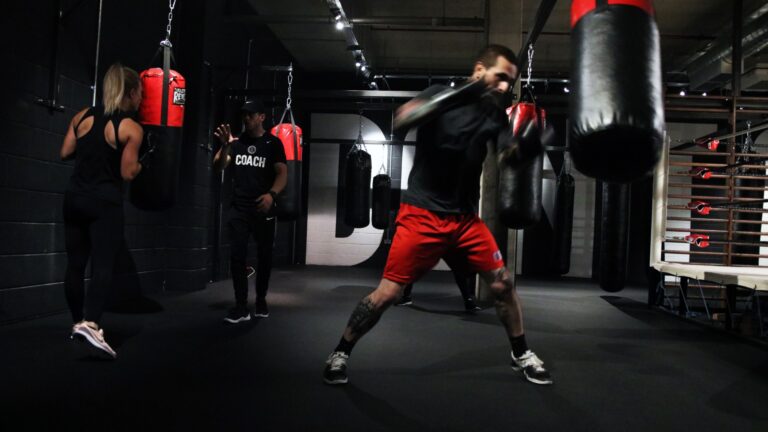WE TOO MUST GO INTO STRICT TRAINING, LIKE THE FIGHTERS AT THE GAMES
First Reading: 1 Corinthians 9:16-19,22-27
Responsorial Psalm: Ps. 83(84):3-6,12
Gospel Reading: Luke 6:39-42
_________________________________________
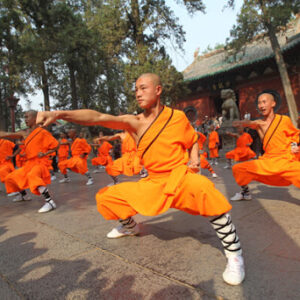
Training forms the core of apprenticeships and provides a backbone for productivity and success since it involves teaching, or developing in oneself or others. Little wonder, in order to practice a profession, exercise a ministry, undertake a new career, partake in a competition, game, sport, etc., a period of training/formation is indispensable. This is so because it helps individuals/groups to learn specific knowledge or skills in order to work effectively. In addition to the basic training required for a trade, occupation or profession, training may continue beyond initial competence to maintain, upgrade and update skills throughout working life. People within some professions and occupations may refer to this sort of training as professional development. Training also refers to the development of physical fitness related to a specific competence, such as sport, martial arts, military applications and some other occupations, for it allows the body to gradually build up strength and endurance, improve skill levels and build motivation, ambition and confidence, discipline and concentration, making the body more resistant to injury and illness. In a nutshell, the importance of training can never be overemphasized, and as a result, its importance creeps into today’s liturgical readings as an indispensable phenomenon in order to be fully formed as the “Master” and achieve an incorruptible and eternal reward.
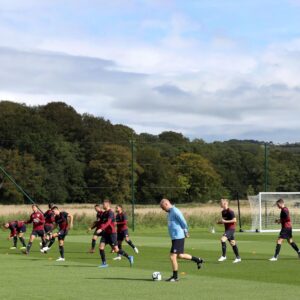
Taking our leap from the first reading, we hear St. Paul talking about “preaching of the gospel” as one of his core responsibilities: “…since it is a duty which has been laid on me; I should be punished if I did not preach it…” And in the course of this, he talks about how he trains and disciplines himself in order to live out the gospel values and achieve an eternal reward; the same way the athletes and fighters at the games go into strict training just to win a wreath that will wither away. Here Paul sees the “training” aspect (bodily discipline/mortification) as an indispensable “spiritual exercise” because of the leadership role he exercises as an Apostle in order to practically encourage his followers to train likewise since it would make no sense to encourage them to “train” or discipline themselves if he himself isn’t disciplined – “a blind man cannot guide another.”
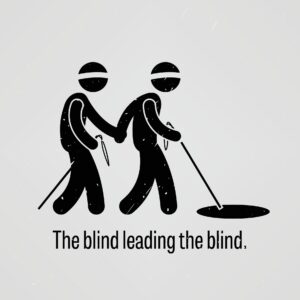
Similarly, in today’s gospel reading, we hear Christ talking about the disciple-teacher relationship and the vital role of training: “The disciple is not superior to his teacher; the fully trained disciple will always be like his teacher.” Put differently, for a disciple to be fully trained, he must pass through a period of “rigid training” where he must learn how to discipline himself, build up his spiritual strength and endurance in resisting temptations, in order to be able to lead others to do the same – for “a blind man cannot guide another.” In other words, in trying to discipline others, one must be disciplined himself; for it would be inappropriate to have a “plank of wood in one’s eye while trying to remove the splinter in the eye of another. Christ tags this as hypocrisy. Although Luke records that Jesus tells this parable to his disciples, the gospel of Matthew clearly explains that it was against the Pharisees that Jesus exclaimed, “Leave them alone; they are blind guides of the blind. And when a blind man leads a blind man, they will both fall into a pit” (Mt 15:14). It was to the Pharisees, above all, that on several occasions Jesus shouted his hypocrites! And, behold, today this terrible exclamation, “hypocrites,” is found in a discourse addressed to his disciples, and therefore also to us: “Hypocrite! Take the plank out of your own eye first, and then you will see clearly enough to take out the splinter that is in your brother’s eye.”
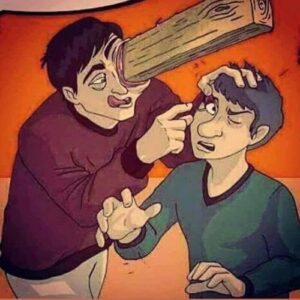
Dear friends in Christ, if we make a sincere examination of conscience and allow ourselves be judged by the Gospel, we will be obliged to admit, (and maybe displeased), that we are all hypocrites at one point in time or another. Therefore, as we gather around the Lord’s table today, we pray for the daily grace and strength to continually “train” not only bodies, but our minds and hearts, the kind of training that continues beyond initial competence to maintain, and upgrade spiritually throughout our lives in order to attain that spiritual maturity like the Master, and above all, to win the wreath that will never wither away.
Shalom!
© Fr. Chinaka Justin Mbaeri, OSJ
Paroquia Nossa Senhora de Fatima, Vila Sabrina, São Paulo, Brazil
nozickcjoe@gmail.com / fadacjay@gmail.com
